Gas vs Electric Water Heaters: Comprehensive Comparison
When it comes to choosing between a gas or electric water heater, it's important to know the differences. This article will discuss the advantages and disadvantages of each option, helping Chandler homeowners make informed decisions based on factors like energy efficiency and upfront costs.

How do electric water heaters operate?
When it comes to water heater replacement, an electric water heater uses a system that relies on submerged heating elements located inside a storage tank. These heating elements are connected to your home's electrical system, providing the necessary power. The unit's thermostat plays an important role by constantly monitoring the temperature of the water. Once the desired temperature is reached, the thermostat shuts off the heating elements. This ensures that you always have hot water readily available whenever you need it.

Advantages of electric water heaters
When it comes to water heaters, electric models have several advantages compared to their gas-powered counterparts.
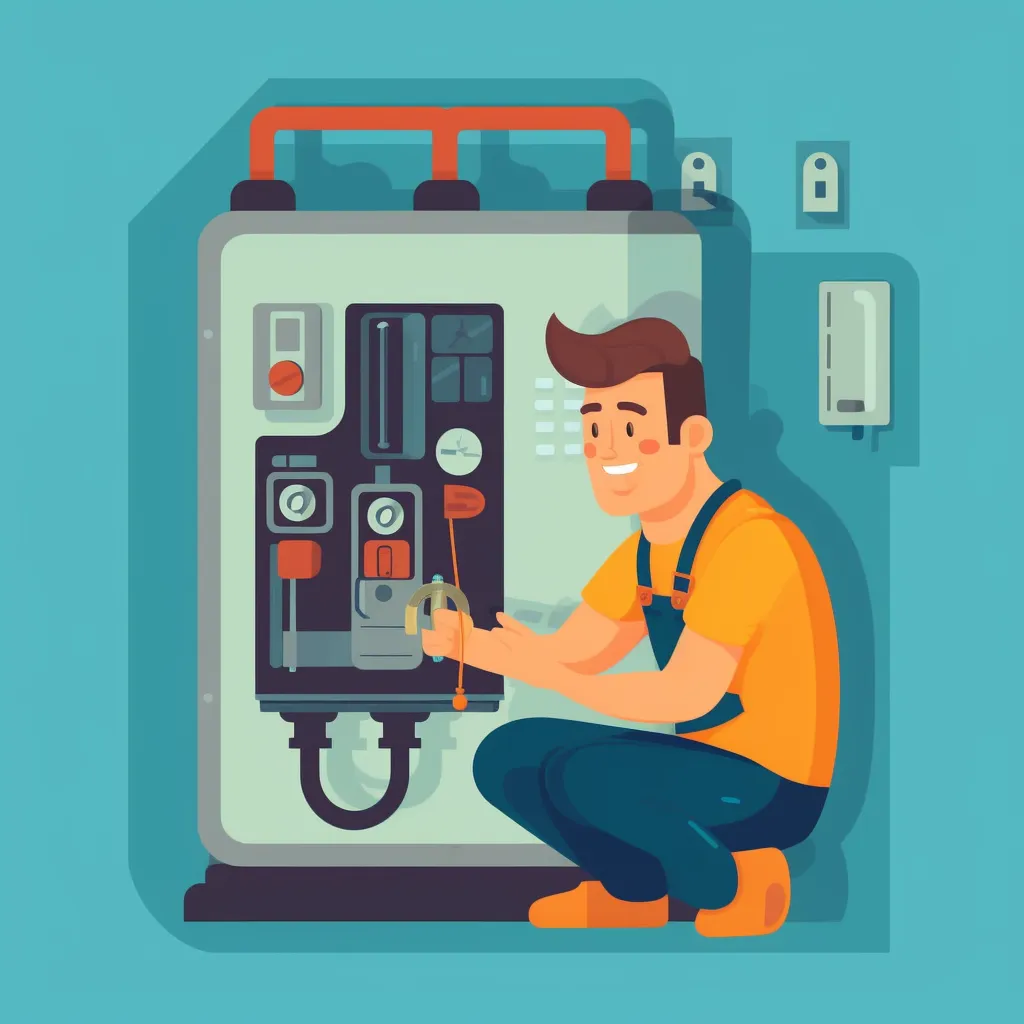
Safety: Electric water heaters don't require gas connections, decreasing the chances of gas leaks and exposure to carbon monoxide. They present a more secure choice for homes in chandler.
Installation flexibility: Since electric water heaters don't need venting for emissions, they can be positioned in multiple spots, offering installation versatility throughout the residence.
Efficiency: Electric water heaters boast impressive energy efficiency, translating nearly all electric input to heat. This can lead to reduced energy expenses in the long run.
Lower upfront costs: When it comes to water heater replacement, electric models can be a cost-effective choice. Not only do they typically have lower upfront costs compared to gas-powered models, but they also offer affordability when it comes to installation and maintenance.
Environmentally friendly: Electric water heaters generate no greenhouse gases while running, positioning them as an eco-friendlier choice and enhancing a home's sustainability.
Durability: Often, electric water heaters outlast their gas-driven counterparts, offering consistent hot water over a more extended duration.
Disadvantages of electric water heaters
When it comes to electric water heaters, it's important to weigh the pros and cons before making a decision. While they do offer several advantages, it's essential to also consider their drawbacks.
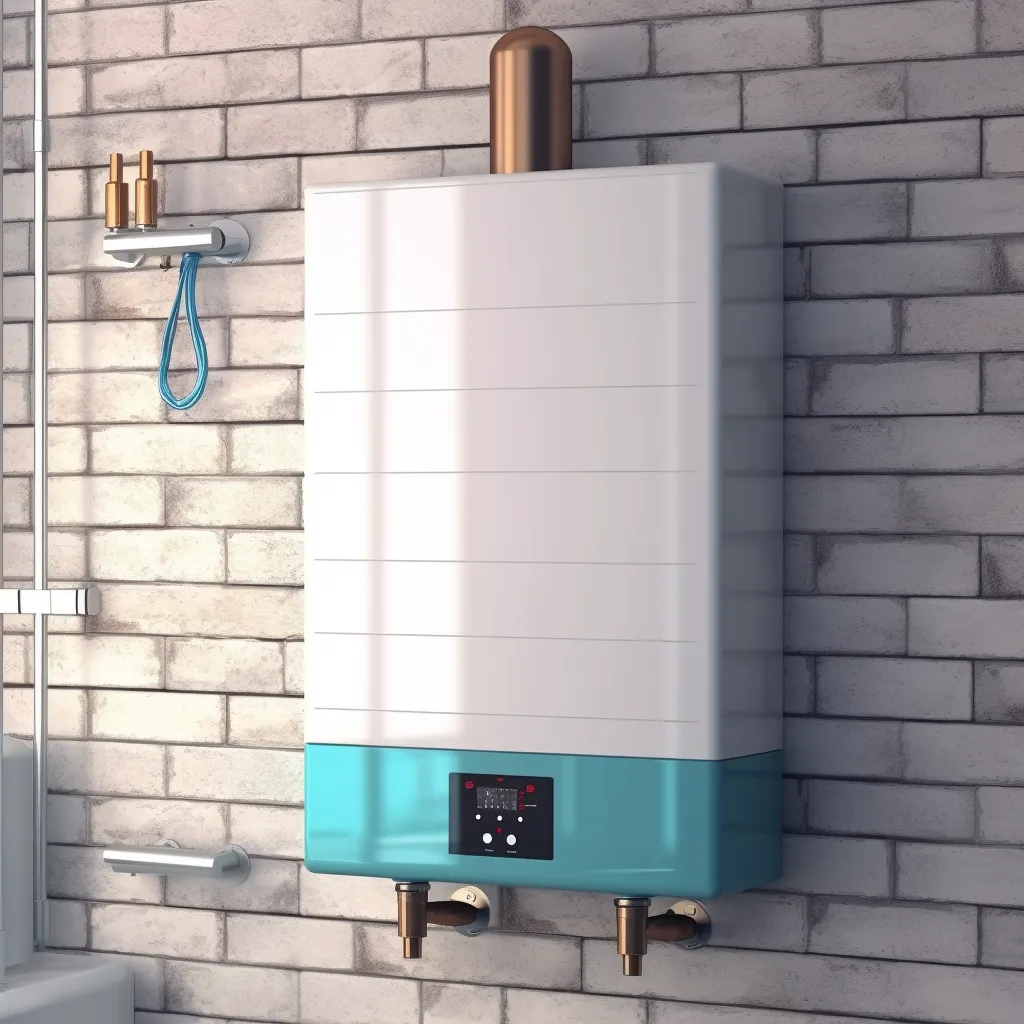
Slower recovery rate: Electric models often have a slower rate compared to their gas counterparts. This can result in a longer wait for the water to reach the desired temperature, especially when there is increased demand.
Energy costs: Though electric water heaters excel in energy efficiency, the cost of electricity can elevate energy expenses. One should weigh the continuous electric charges in evaluating the total cost.
Reduced longevity: Electric models typically have a shorter lifespan than their gas-powered counterparts. This difference in longevity means that you may find yourself in need of a replacement unit sooner than expected, ultimately leading to higher long-term costs.
Effects of power interruptions: With electric water heaters, a steady supply of electricity is crucial for proper functioning. Unfortunately, this poses a challenge during power outages. In such situations, the availability of hot water is disrupted until the power is restored.
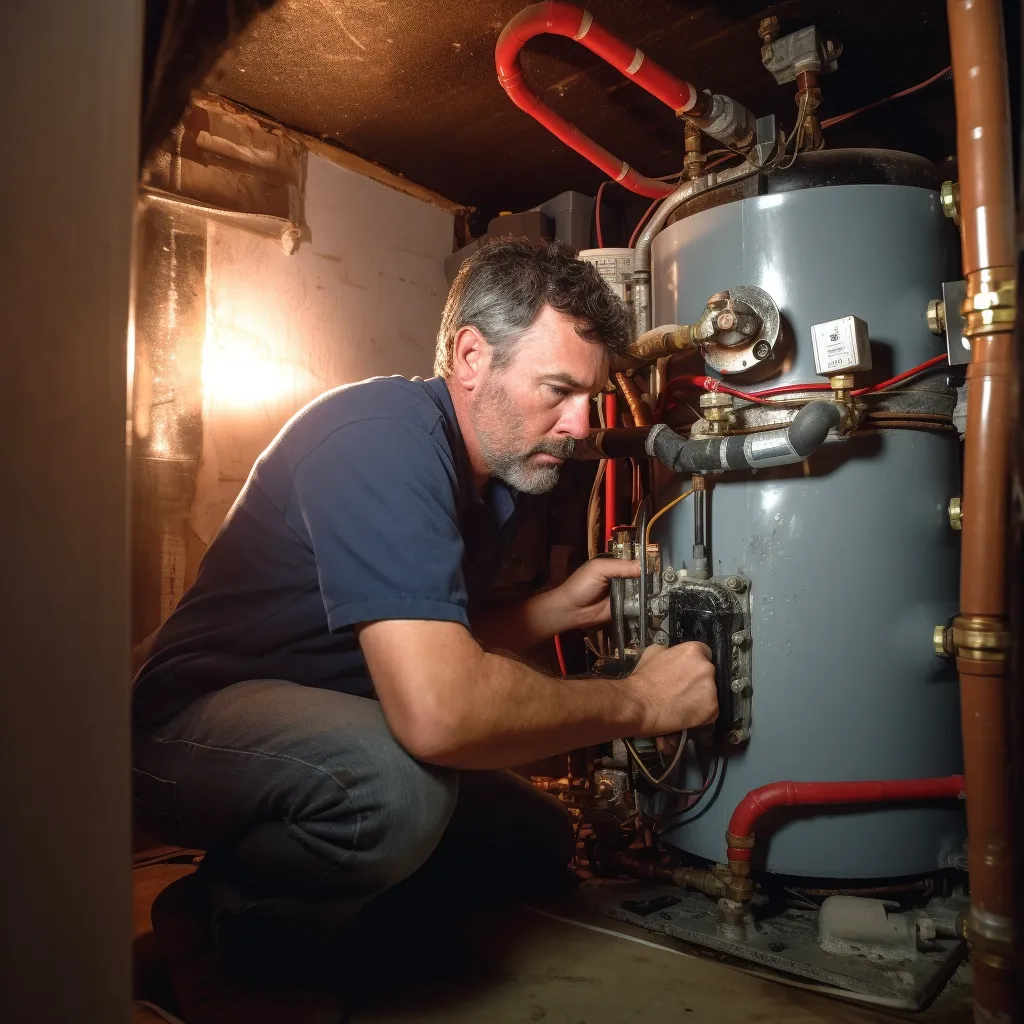
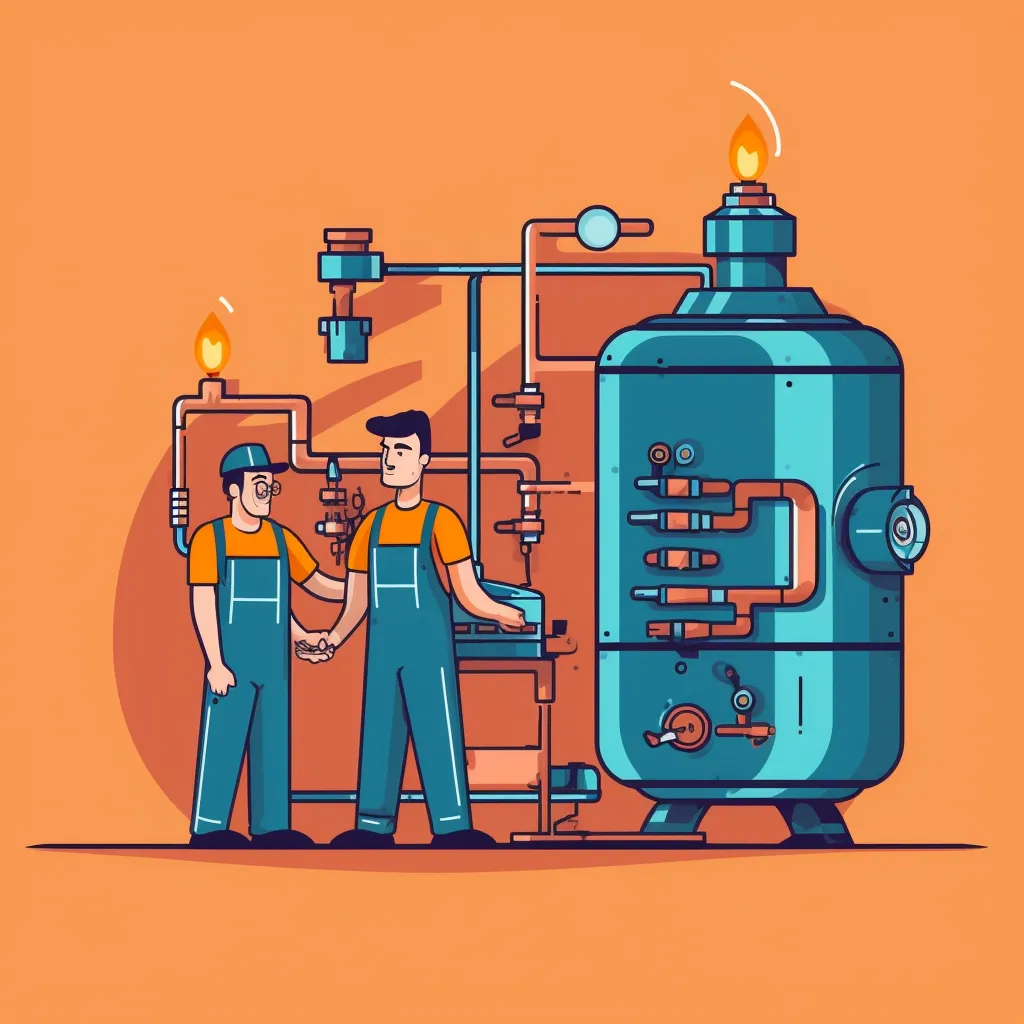
How gas water heaters operate?
When it comes to water heating systems, gas water heaters play a crucial role. They operate by utilizing a gas burner positioned at the bottom of a spacious tank. The main function of this burner is to generate enough heat to warm up the water stored inside the tank. Consequently, the hot water is readily available through a tap whenever required. To maintain a steady supply of heated water, as hot water gets used up, cold water is drawn into the tank, ensuring a continuous cycle of heating and refilling. This efficient process guarantees a consistent flow of hot water for all your household needs. Check out our complete guide on Tankless vs. Tank Water Heater.
Advantages of gas water heaters
Gas water heaters are highly preferred by a vast number of homeowners due to their widespread popularity.
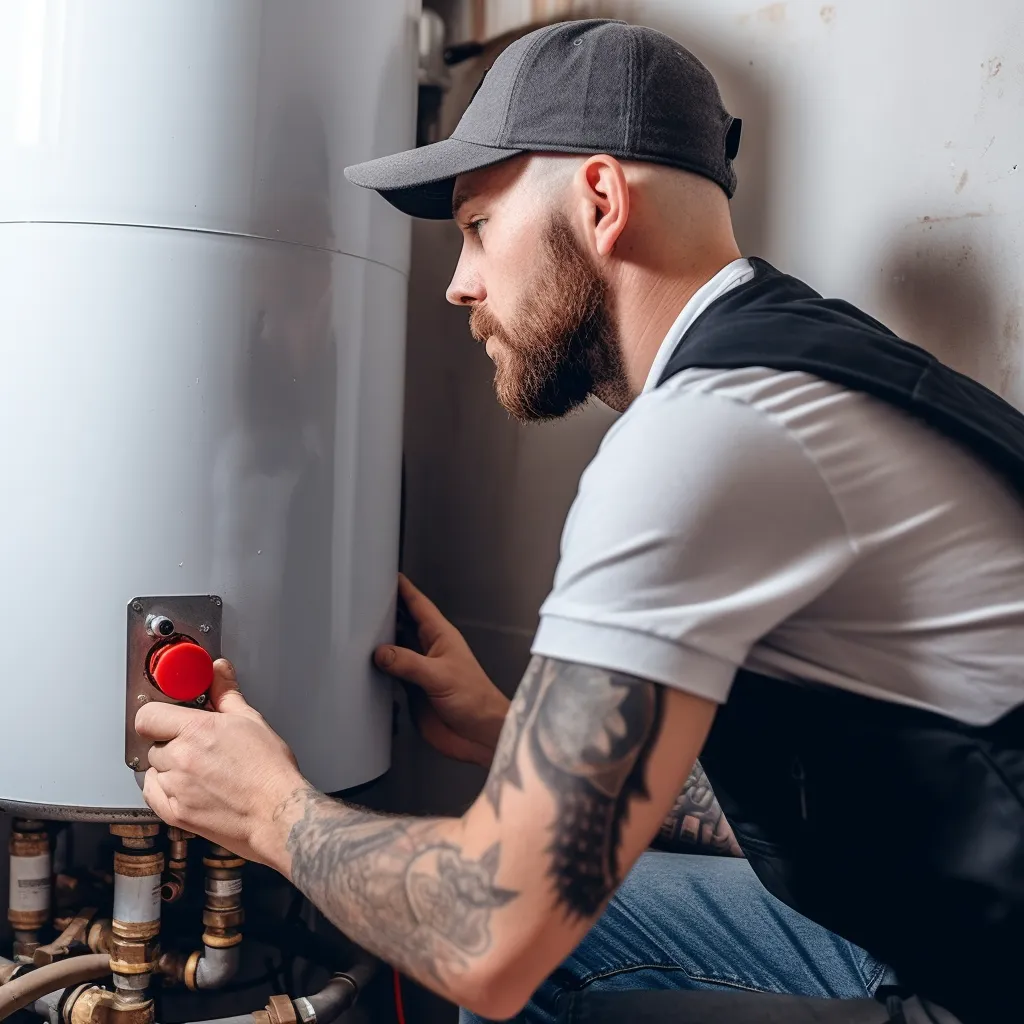
Cost-effectiveness: Gas water heaters typically offer long-term cost-effectiveness, as they can lead to reduced utility expenses when compared to electric models. Gas tends to be a more economical fuel source, potentially resulting in savings over an extended period.
Faster hot water delivery: Gas water heaters are the preferred choice for households in need of speedy hot water. With their ability to heat water more quickly than electric models, they ensure that hot water is readily available as soon as you turn on the tap. This makes gas water heaters a valuable option for those who require immediate access to hot water.
Longer lifespan: Gas water heaters often enjoy an extended lifespan in comparison to electric counterparts. This translates to less frequent replacements, ultimately saving you money on replacement expenditures.
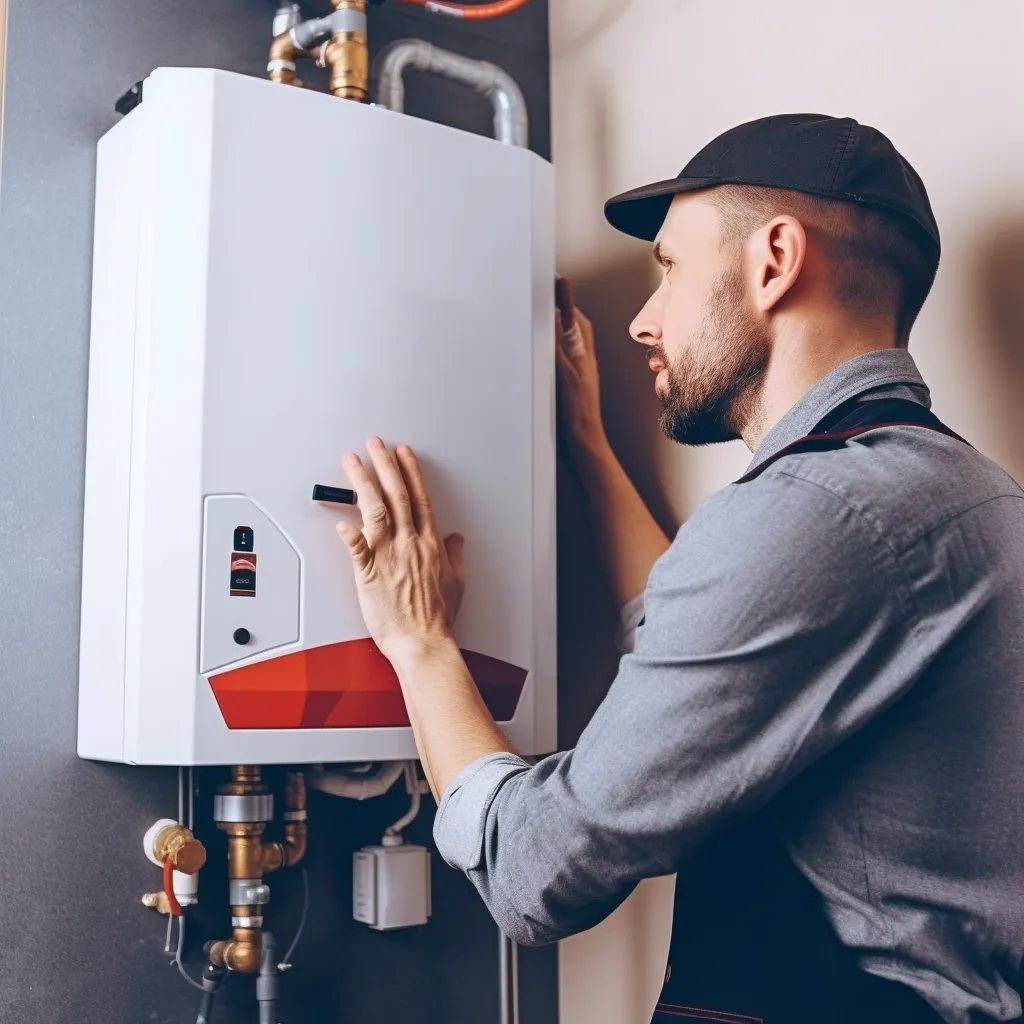
Drawbacks of gas water heaters
Despite their numerous benefits, there are a few potential disadvantages associated with gas water heaters.

Environmental impact: Gas water heaters contribute to air pollution due to the combustion of natural gas, a fossil fuel. This process releases pollutants into the atmosphere, contributing to broader environmental issues.
Explosion hazard: Incorrect installation or improper use of gas water heaters can potentially result in explosions. It's vital to adhere to safety protocols rigorously and enlist a professional for installation to ensure correct functioning and minimize the chances of accidents.
Higher maintenance costs: Gas units typically demand more maintenance than their electric counterparts. This includes routine inspections, regular cleaning, and addressing potential repairs. Unfortunately, these additional maintenance requirements can result in increased ongoing expenses.
Extended installation time: Installing a gas unit tends to be more time-consuming than electric ones. This is because it involves various additional tasks such as setting up gas lines, venting systems, and ensuring proper connections. It is crucial to allocate sufficient installation time, typically several hours, to guarantee a satisfactory and safe setup.
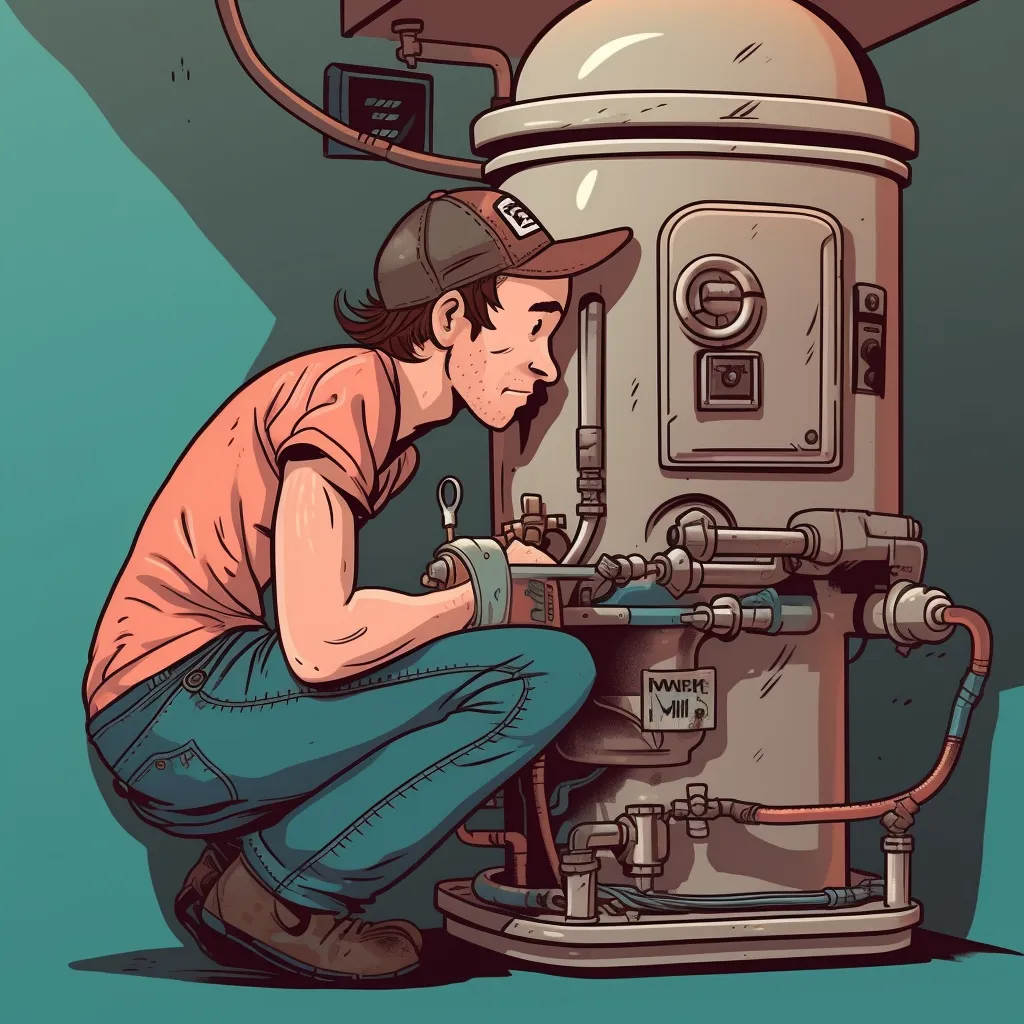
Do electric water heaters provide energy efficiency?
When it comes to water heater replacement, one must consider various factors that can affect the efficiency of electric models. These factors include the size of the unit, the quality of insulation, and the operating temperature. Although gas-powered water heaters are generally recognized for their higher efficiency, it's worth noting that electric models have been making strides in improving their energy efficiency ratings over time.
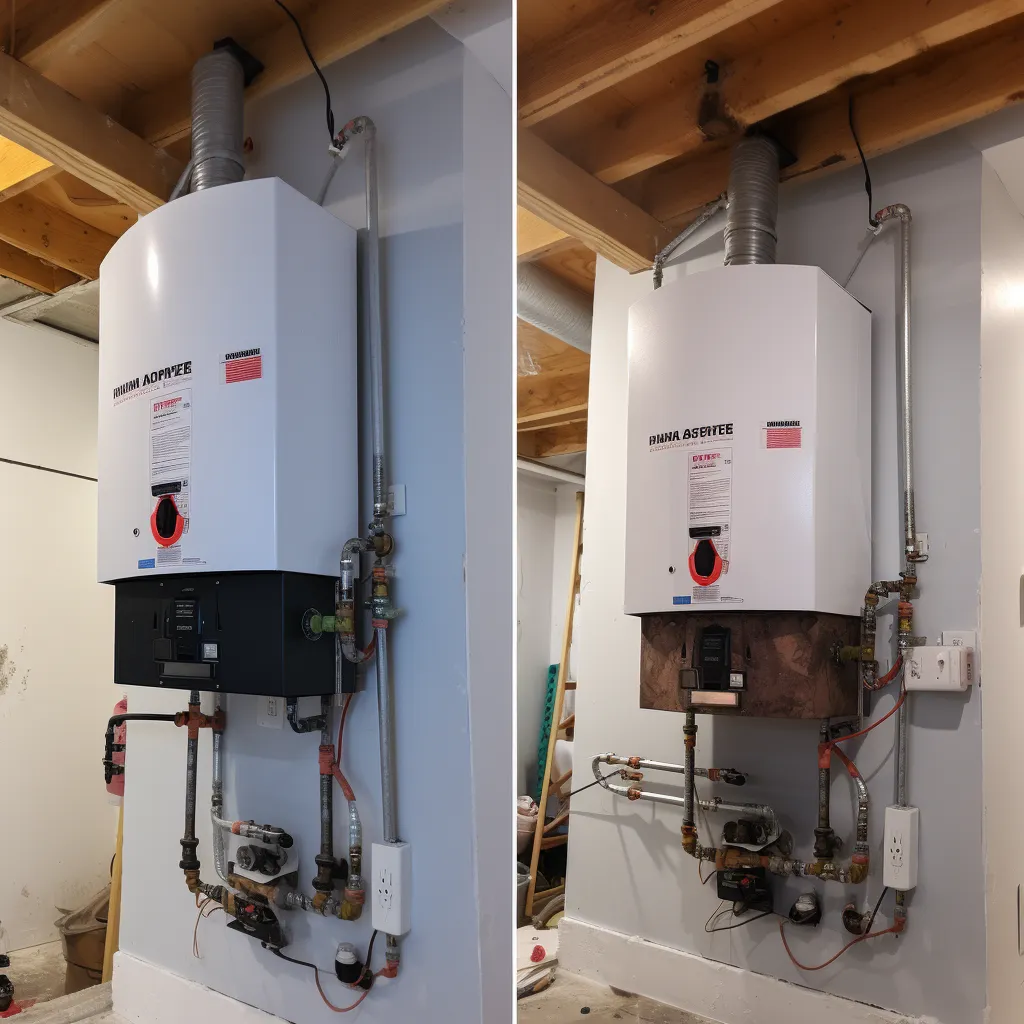
Do gas water heaters offer energy efficiency?
Gas-based models are often the superior choice in terms of cost-effectiveness and energy efficiency when compared to electric models. Unlike electric heaters, gas water heaters work by burning natural gas to heat the water. This method typically consumes less energy, resulting in greater efficiency. The efficiency rating of a gas water heater can be impacted by various factors including the unit's size, model, and maintenance practices. Overall, gas water heaters provide a more efficient and economical solution for your water heating needs.
What is the cost of purchasing and installing electric water heaters?
Electric water heaters come in various sizes and with diverse features, resulting in varying costs. On average, a 50-gallon electric water heater may range from $300 to $800 in price. The installation of an electric water heater usually adds an extra cost of approximately $300 to $500, which may fluctuate based on the specific project requirements and necessary permits.

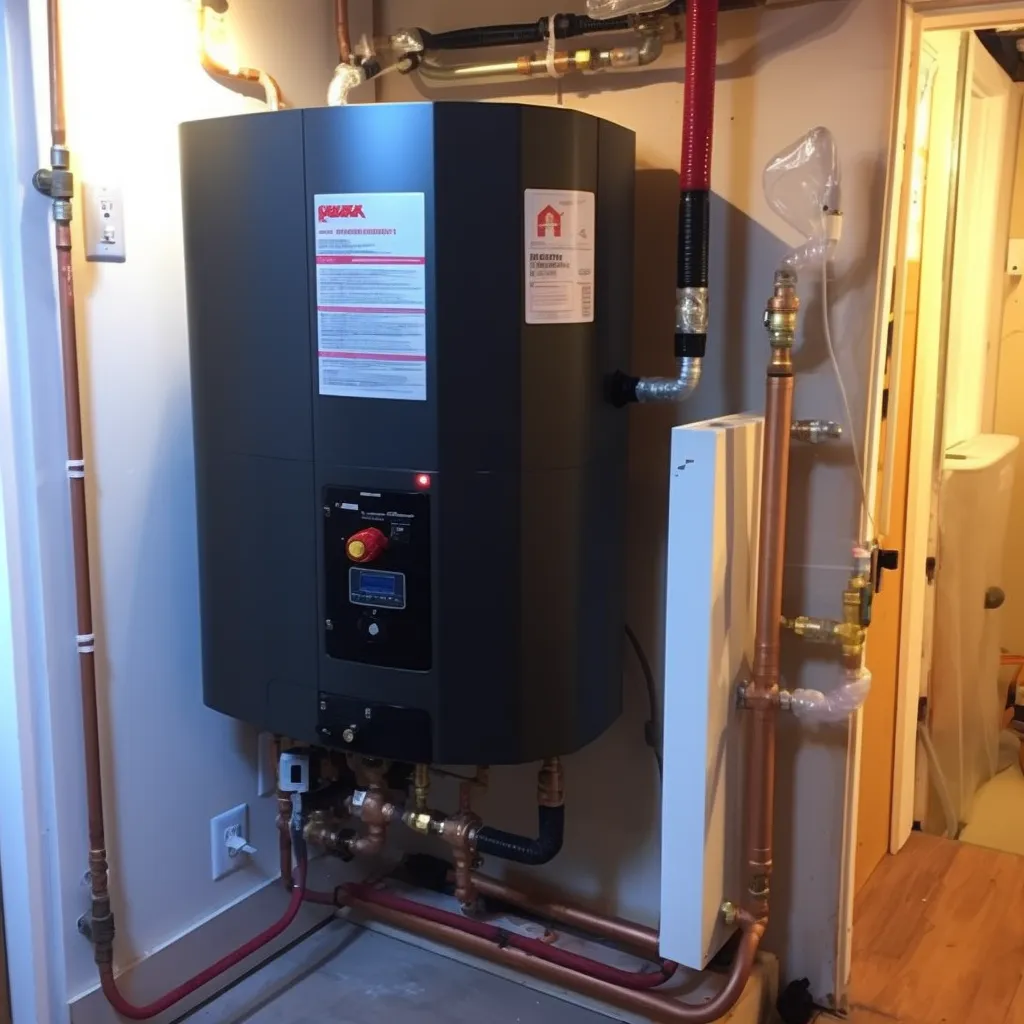
How much does it cost to purchase and install gas water heaters?
Gas water heaters are available in various sizes, typically priced between $500 and $1,500, although premium models can go up to $3,000. You should also factor in installation costs, which can fluctuate based on your location and specific plumbing needs. While the initial expense of a gas water heater may seem higher, it's essential to acknowledge the long-term advantages and savings. Gas water heaters offer superior energy efficiency compared to certain other types, resulting in reduced utility bills over time. Moreover, they ensure a consistent and uninterrupted supply of hot water, which can be particularly advantageous for households with high hot water demands.
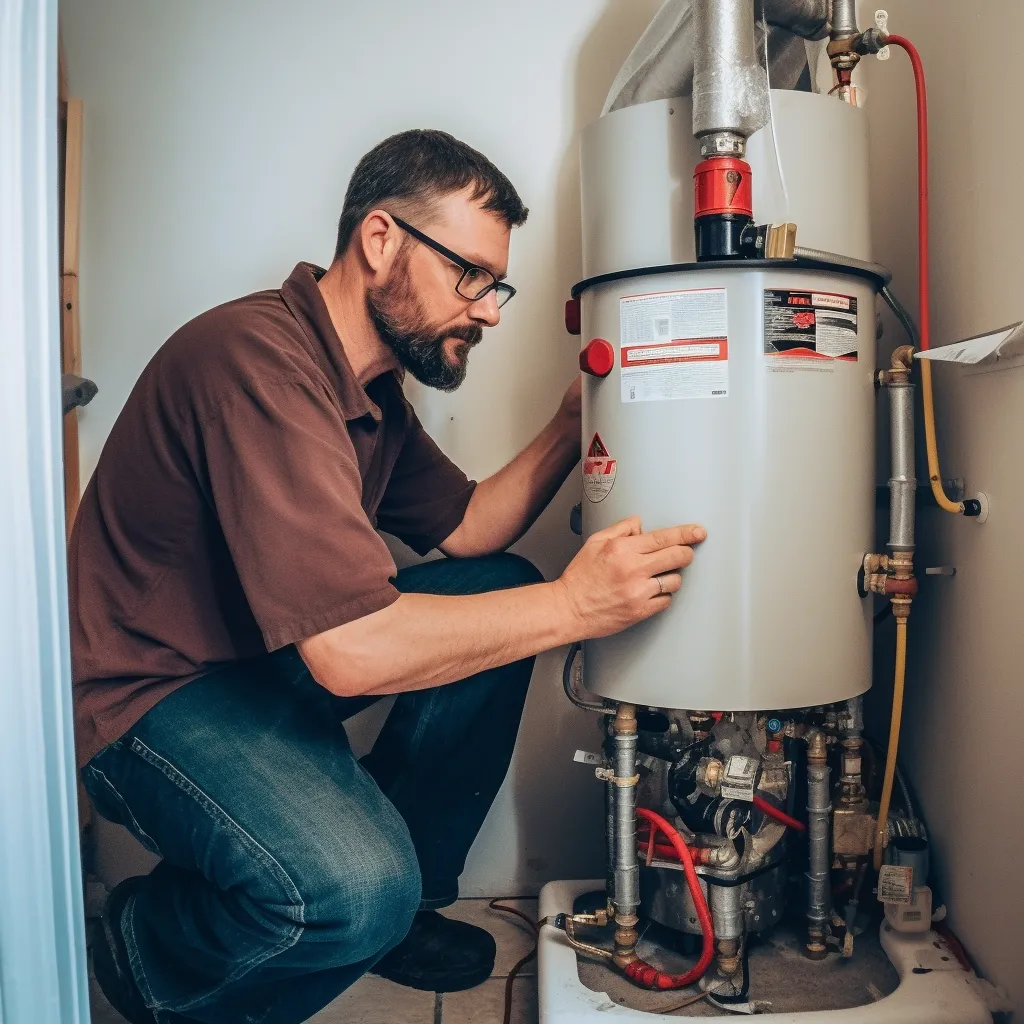
Electric water heater maintenance requirements
Water heater replacement is an important part of proper maintenance for electric water heaters. Regularly checking the temperature and pressure relief valve is crucial to avoid overheating and potential explosions. Flushing the tank every six months to a year helps to remove sediment buildup and maintain efficiency. It is also essential to inspect the heating elements for any damage or mineral buildup and replace them as needed. Secure and undamaged electrical connections are vital for safe operation. If you are unsure about performing maintenance tasks, it is advised to consult a licensed professional.
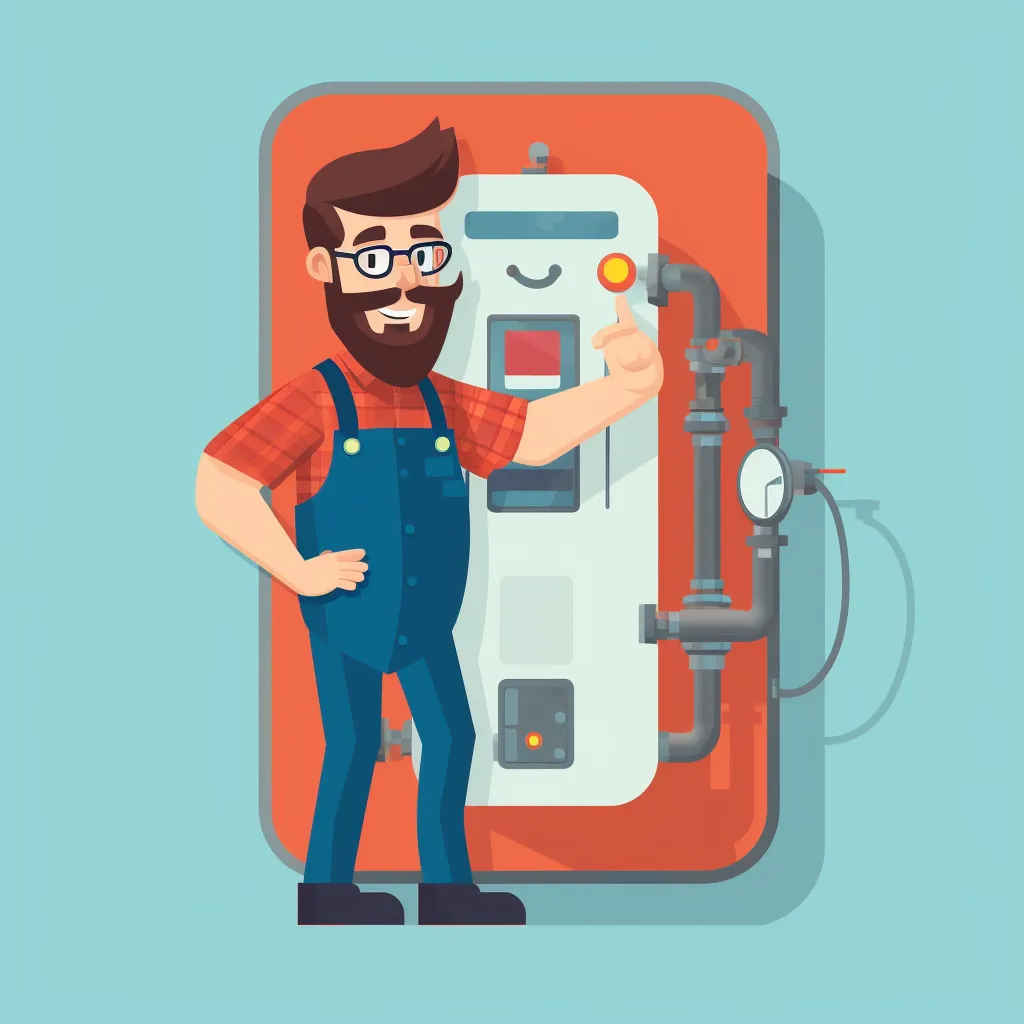
Gas water heater maintenance requirements
Staying on top of regular tasks is crucial for both efficiency and safety. Annual tank flushing, periodic inspections of the anode rod, and monitoring the burner and pilot assembly for any signs of debris or damage are all essential. Additionally, it's important to test the temperature and pressure relief valve on a yearly basis and check for gas leaks. By diligently completing these maintenance tasks, you can ensure your gas water heater operates efficiently and safely. If you have any uncertainties or concerns, it is always recommended to consult a licensed professional for assistance.
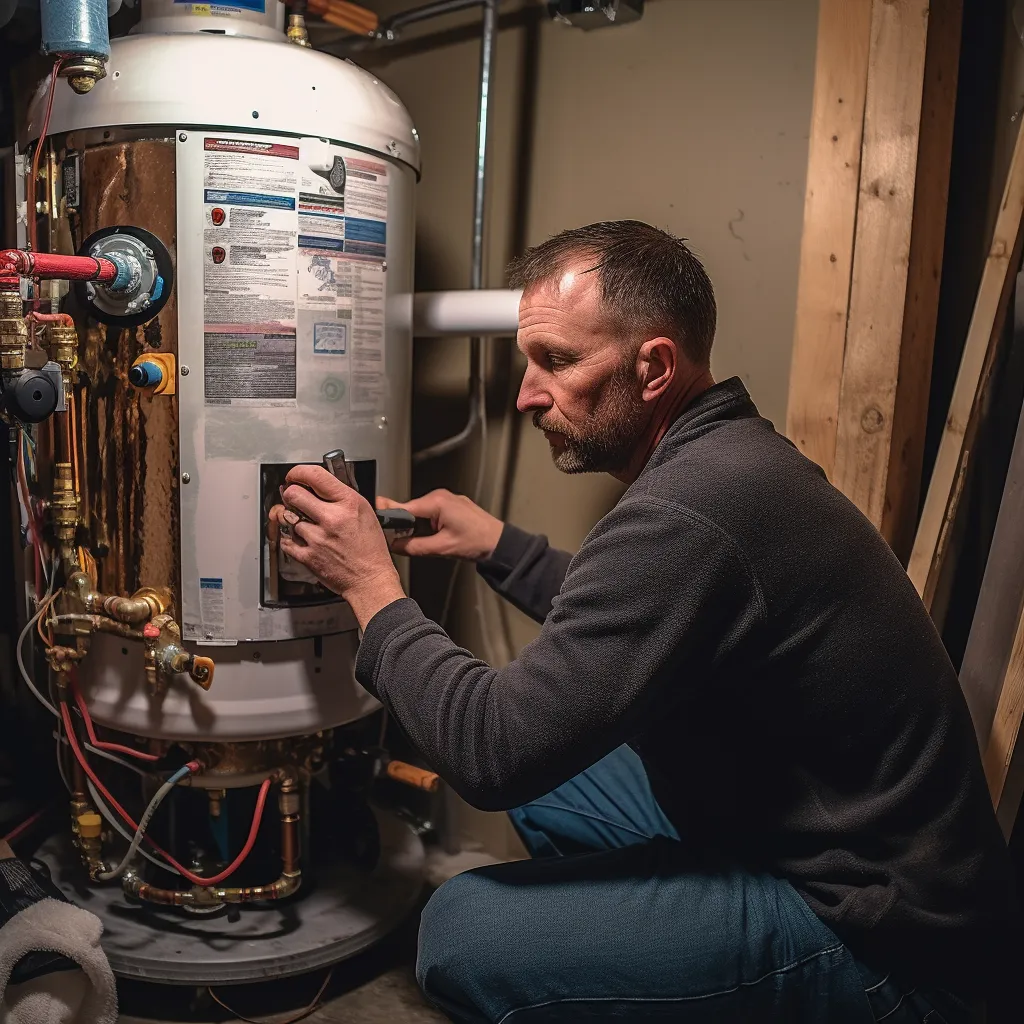
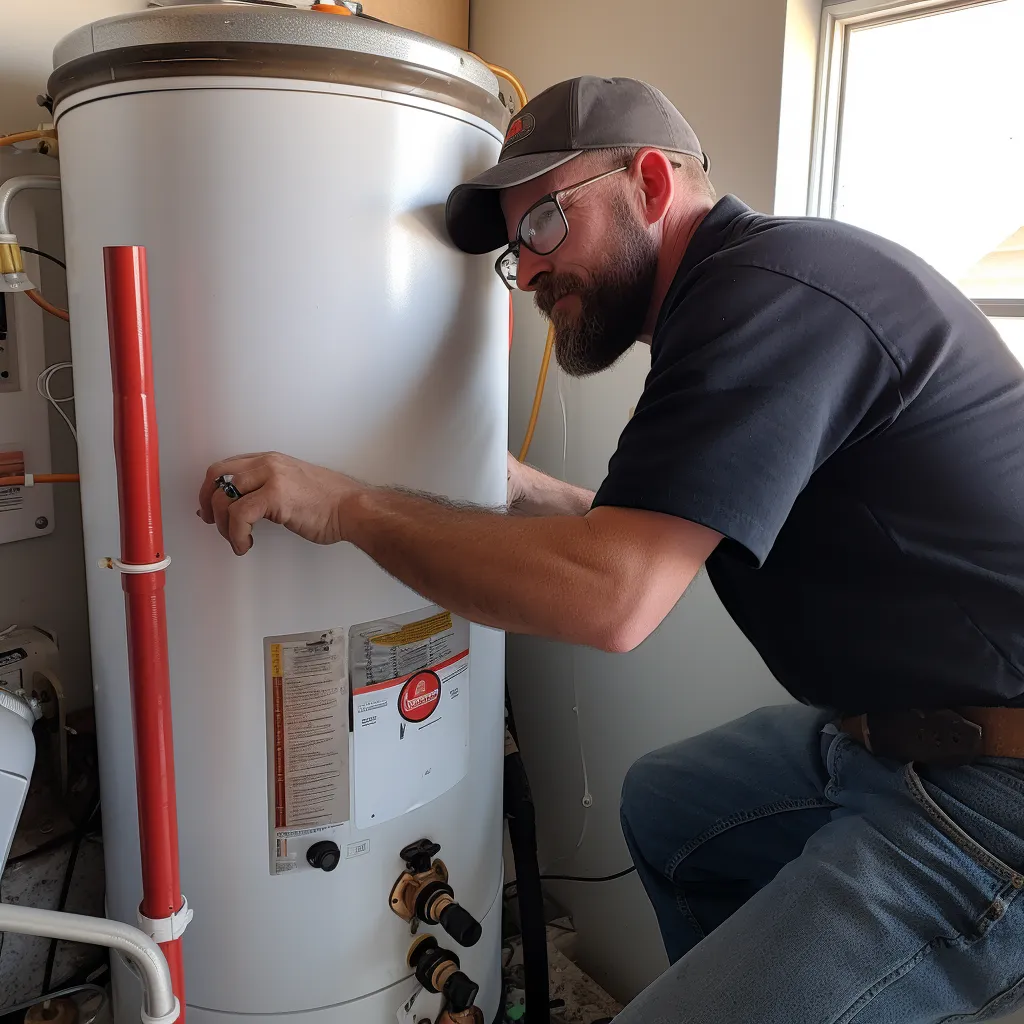
Safety precautions for electric water heaters
To avoid potential hazards, such as electrocution and fire, it is essential to prioritize safety when using an electric water heater. These risks can occur if the heater is not grounded correctly or malfunctions. Additionally, placing the water heater near flammable materials can also create a fire hazard. To minimize these dangers, it is crucial to follow the manufacturer's instructions and employ a licensed professional for the installation process. By adhering to these precautions, you can guarantee the safe and efficient operation of your electric water heater.
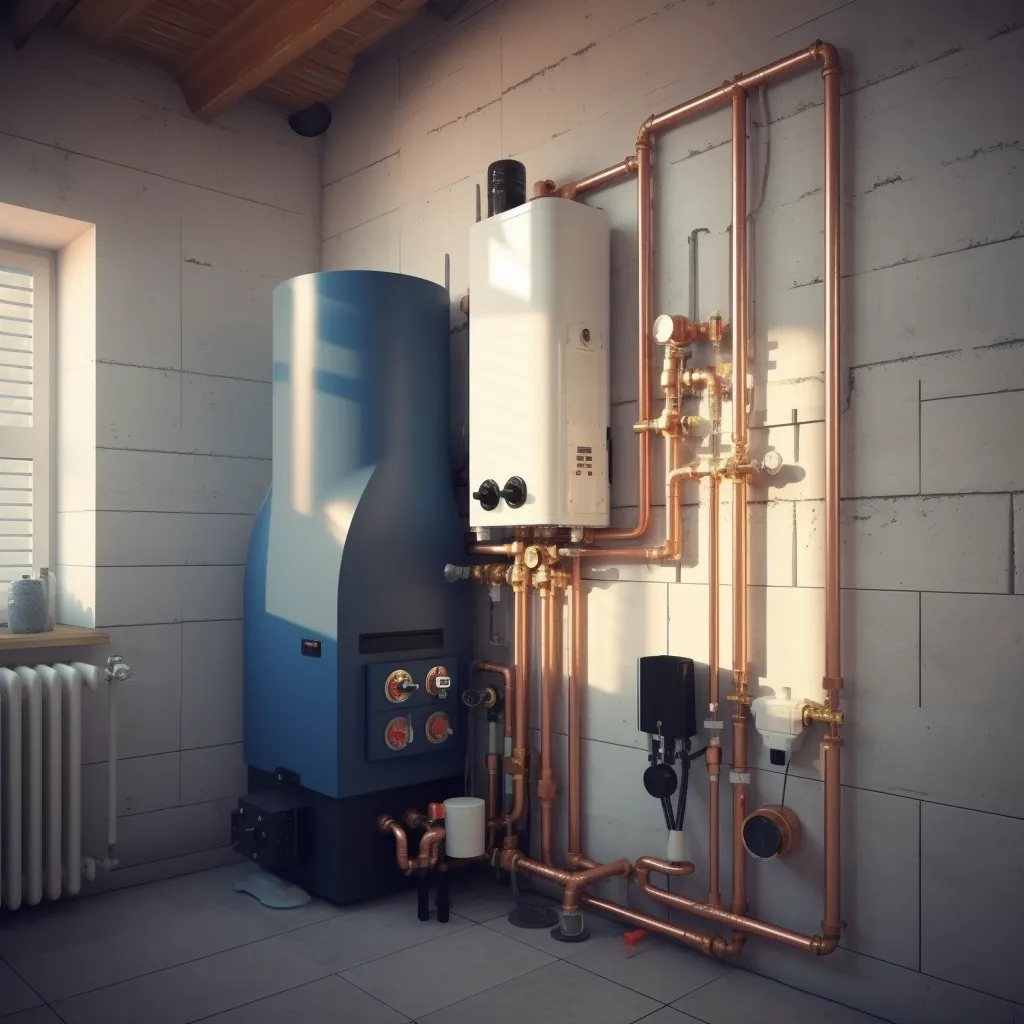
Safety considerations of gas water heaters
Ensuring safety while using gas water heaters is paramount. It's essential to install a carbon monoxide detector in close proximity, conduct regular inspections and maintenance of the heater, and maintain a clear area around it, free from flammable materials. These measures collectively contribute to a secure home environment.
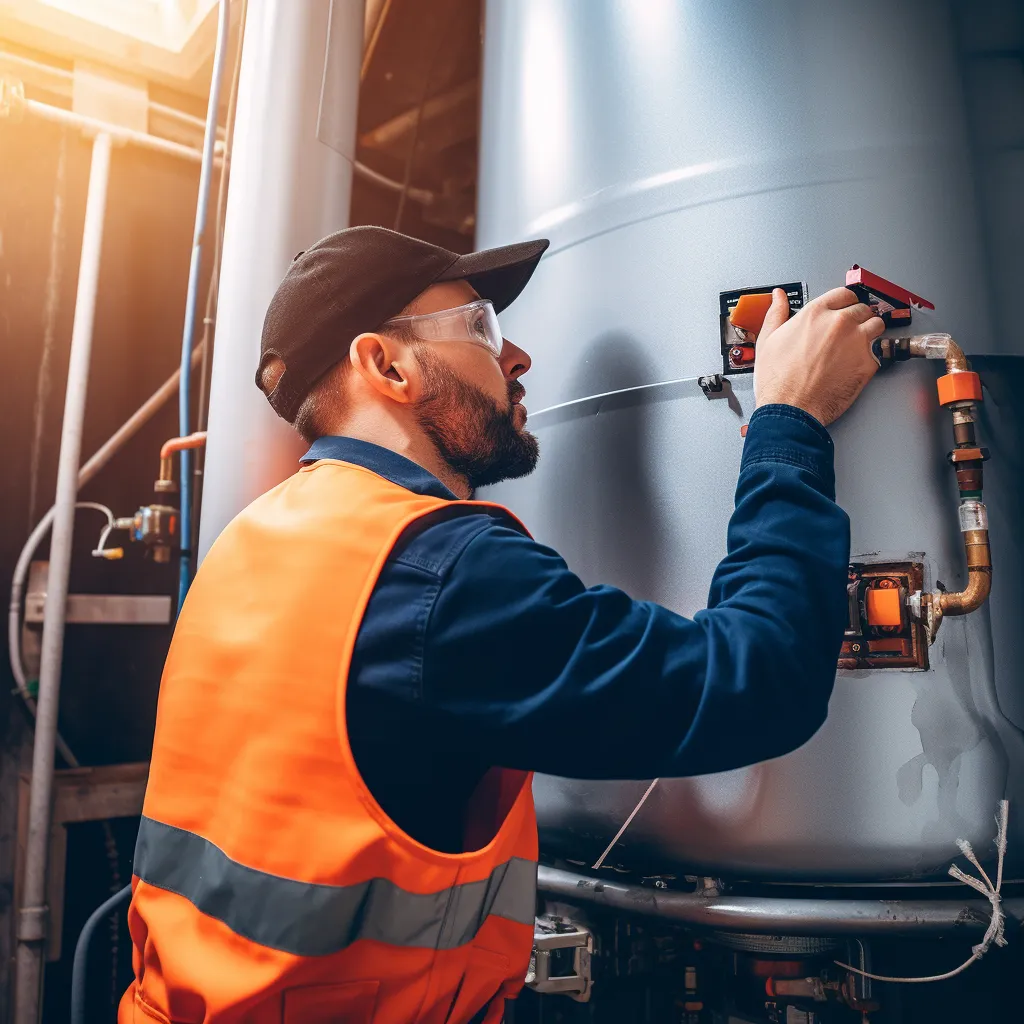
How to decide between an electric and gas water heater
When it comes to selecting the right water heater for your needs, it is essential to consider several factors. By taking these factors into account, you can make a well-informed decision about the most suitable type of water heater for your requirements.
Consider your home size and hot water usage: Select the suitable capacity by taking into account the size of your household and the frequency of hot water use.
Evaluate the upfront purchase and installation costs of electric and gas water heaters. Gas heaters might provide eventual savings, whereas electric heaters have lower initial expenditures.
When it comes to efficiency, gas water heaters have the upper hand. They are known to be more energy-efficient and cost-effective compared to their electric counterparts.
Electric water heaters demand less upkeep, whereas gas heaters necessitate routine inspections for safety and malfunction prevention.
Electric water heaters emit fewer pollutants and have a smaller carbon footprint when compared to gas water heaters.
In the end, your selection of a water heater will hinge on your individual preferences, lifestyle, and financial situation. Take into account aspects like energy efficiency, installation expenses, maintenance demands, and the accessibility of fuel sources in your vicinity. Evaluate your hot water requirements, potential long-term savings, and any particular environmental concerns. By carefully considering these factors, you can arrive at a choice that matches your priorities and guarantees a dependable hot water supply for your home.
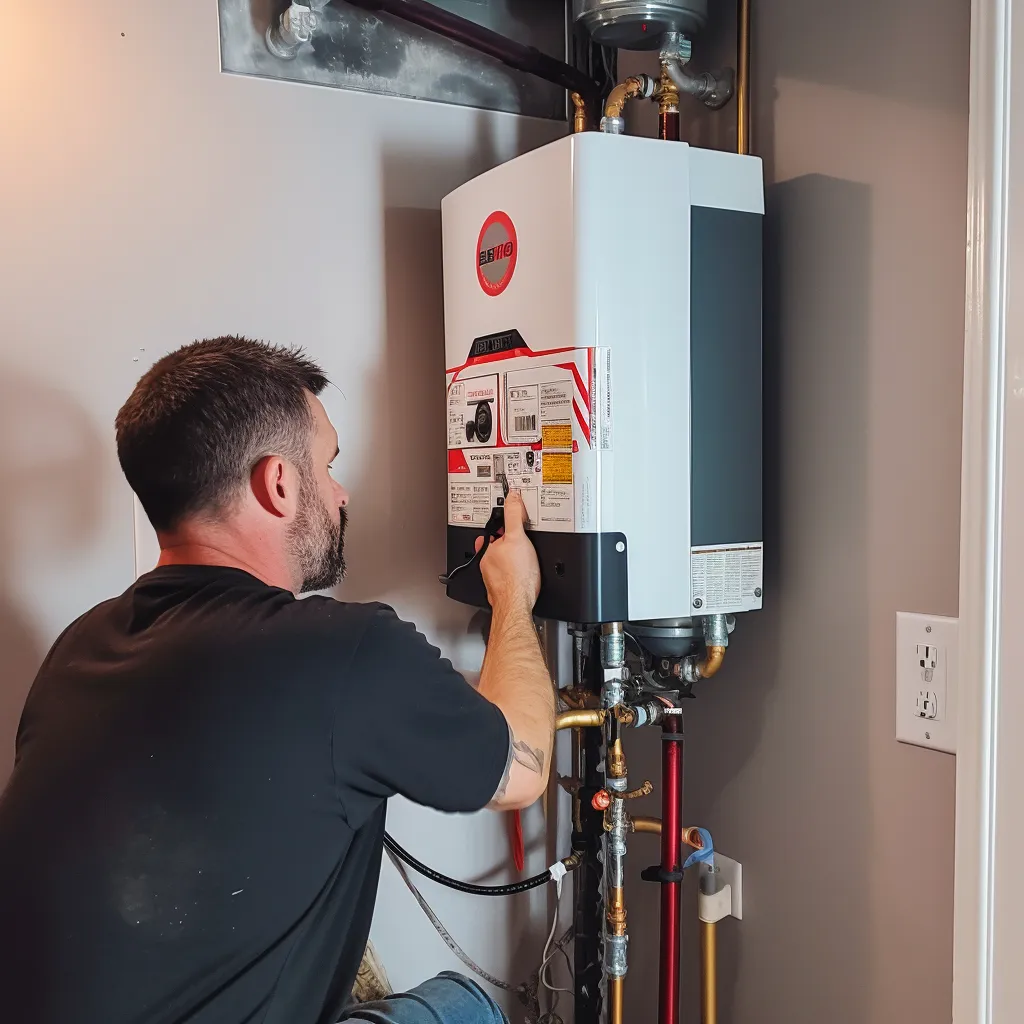
The benefits of enlisting a licensed professional for water heater installation
Installing or replacing a water heater is a substantial undertaking that demands caution. While some may consider a DIY approach to save on costs, it can be fraught with risks and potential hazards. It is highly advisable to enlist the services of a licensed and seasoned professional for this task. They possess the requisite knowledge, skills, and expertise to ensure a secure and proper installation. By opting for a professional, you can enjoy peace of mind, knowing that safety protocols will be strictly adhered to and any potential issues will be effectively addressed. Prioritizing your safety is paramount, and relying on a licensed professional is the prudent and responsible choice.
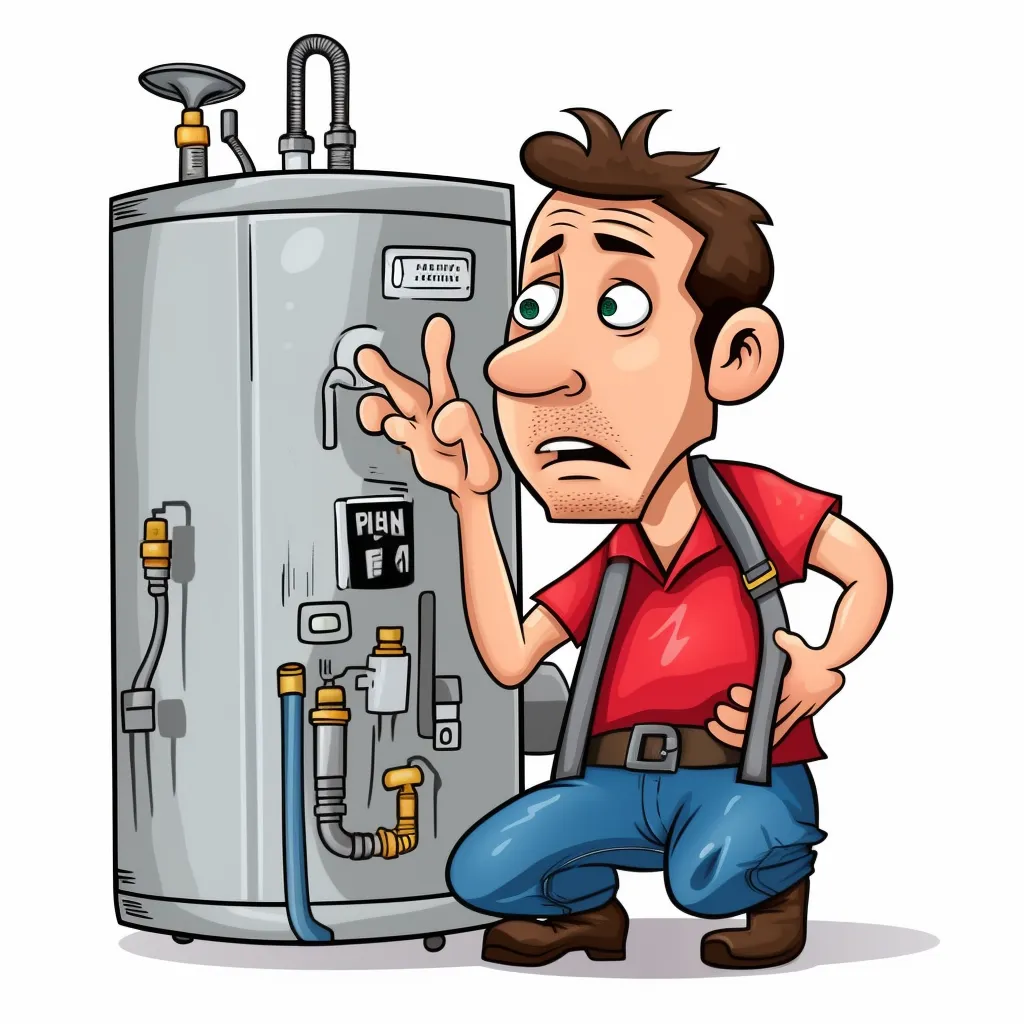
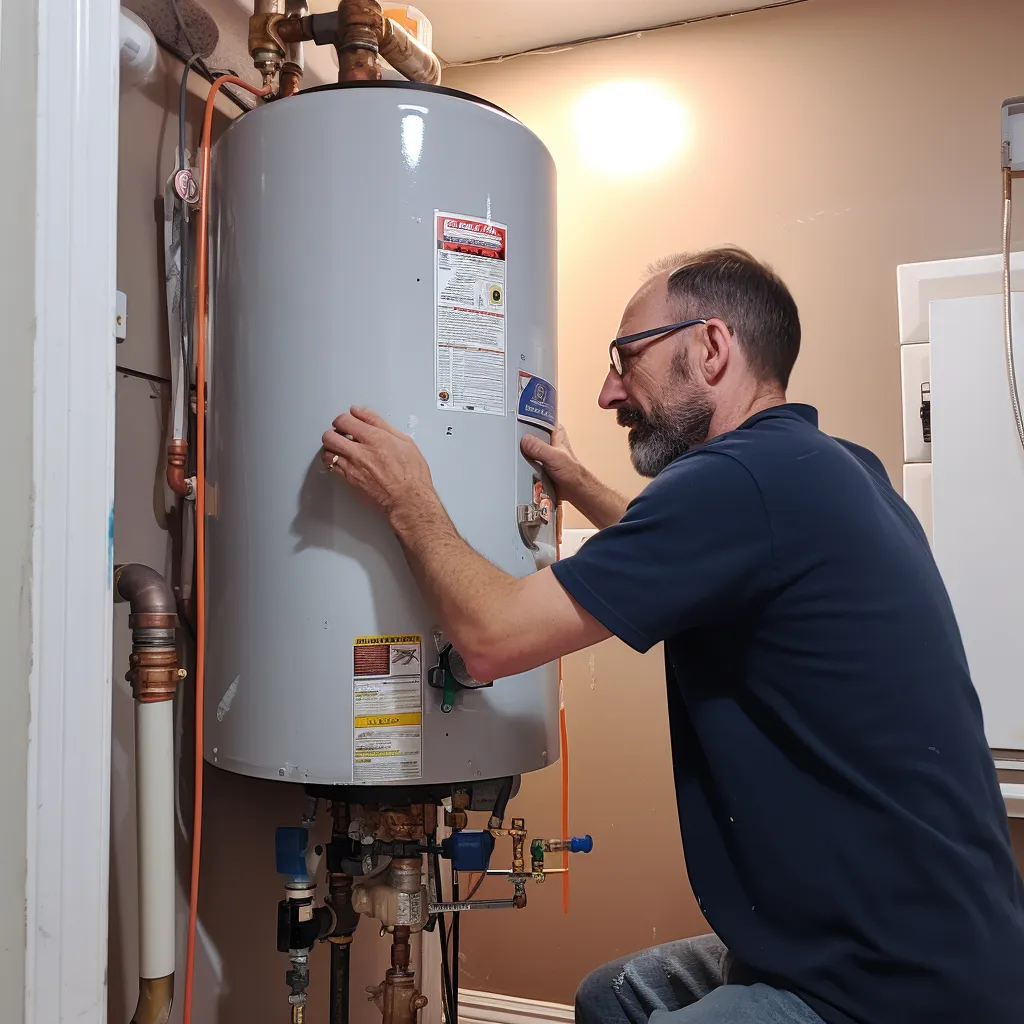
Make sure to conduct thorough research
Thorough research is crucial when selecting a water heater, considering factors such as electric and gas models, safety considerations, and installation requirements. By carefully planning and evaluating these aspects, you can find the perfect water heater that suits your needs. However, it is important to stress the importance of hiring a licensed professional to ensure the correct installation of your water heater. Their expertise will ensure safe and efficient operation.
Contact Us
GET IN FULL TOUCH
PHONE:+(480) 470-3216
EMAIL:
adam@waterheaterchandler.com
Mil-Spec LLC
Chandler, AZ 85226
